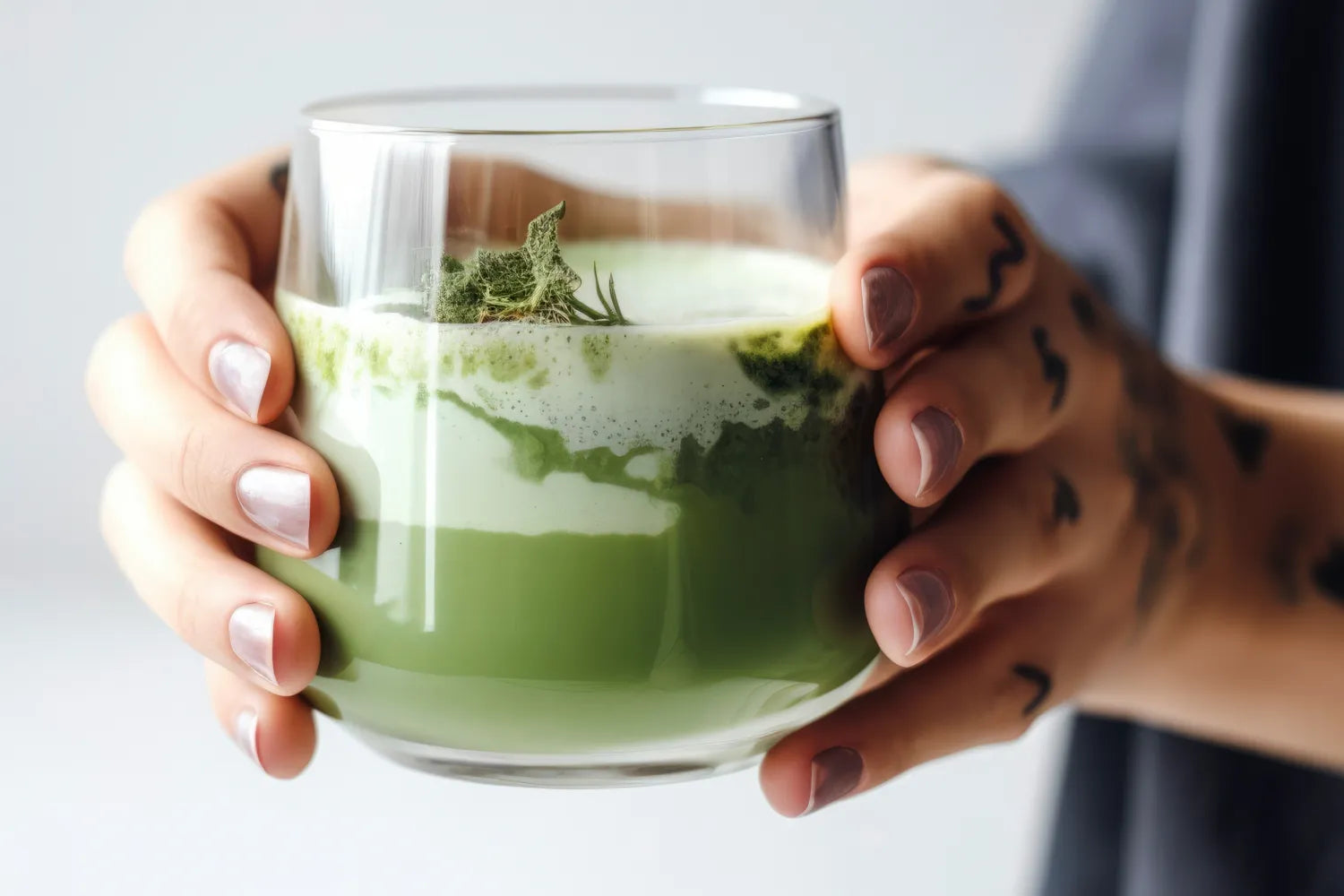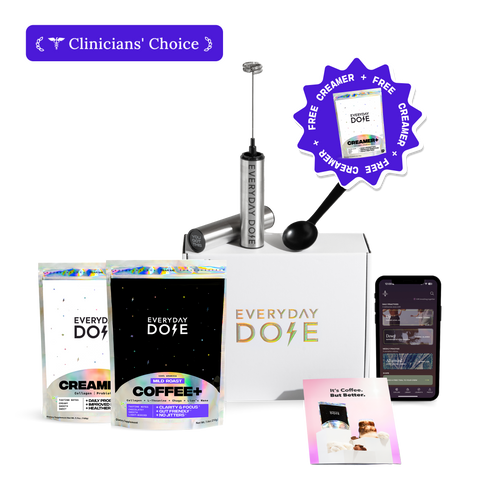Matcha vs. Black Tea: Caffeine Comparison and More

When it’s time to relax, what do you do? Many people pour a hot cup of tea and kick back with a good book. If this is you, you might reach for any bag of tea you happen to have — after all, tea is all the same, right?
As it turns out, some types of tea are better for relaxation than others. Let’s take a closer look at matcha and black tea and analyze the differences and similarities.
What Is Matcha?
Matcha is Instagram’s favorite tea because of its snap-worthy bright green hue. However, it’s not just the appearance of matcha that makes it a crowd favorite. Matcha also has an incredibly versatile flavor that lends itself to all sorts of confections, including ice cream, pancakes, and oatmeal.
This tea is made from the leaves of Camellia sinensis plants that have been carefully grown in the shade. The highest quality of matcha (ceremonial grade matcha) is made using only the freshest leaves on the plant because of their high caffeine content.
The leaves are dried in a process similar to green tea, then crushed and ground into a powder. This powder is then whisked together with hot water for a delicious, bright green pick-me-up.
What Is Black Tea?
Like matcha, black tea is made from the dried leaves of the Camellia sinensis plant. However, black tea leaves are dried in a slightly different way which increases the tannins in the tea. This is what contributes to black tea’s slightly bitter taste. This bitter taste is also due to the fact that black tea is made from older leaves.
Unlike matcha, black tea comes in many varieties. You can get strong brews like English or Irish breakfast teas, citrus blends like Earl or Lady Grey, and spiced blends like chai tea. This makes it a great option for people who like to try something new.
Black tea is made the same as most other types of tea. Simply steep your tea bag in some hot water for a minute or two and then remove the bag to enjoy your tea.
What Is the Difference in Caffeine Content?
As we dive into our comparison between matcha and black tea, we’d like to start with the element that most people probably consider the most important: caffeine. If you need a cup or two of coffee to get yourself going in the morning, you probably want to know which one is highest in caffeine. Alternatively, you might want to know so you can avoid high-caffeine tea.
Well, wait no more. Matcha contains about 70 milligrams of caffeine per cup, although this can vary depending on the brand. Meanwhile, eight ounces of black tea contains about 47 milligrams of caffeine per cup. To put this into context, a regular cup of black coffee contains around 120 milligrams of caffeine.
It’s clear that matcha contains a bit more caffeine. If you prefer to keep your caffeine intake low (which might be for the best), you can still enjoy matcha — just look for a brand that specifically offers low-caf matcha.
For instance, our Mushroom Matcha+ only contains 45 milligrams of caffeine per serving. It’s enough to help you feel like you can take on anything the day throws at you, but not so much that it’ll leave you anxious and foggy before work.
Which Has More L-Theanine?
Hold on — what’s L-theanine and why does it matter? This amino acid can help support balanced mental health, ease feelings of stress, encourage a good night’s sleep, and support overall brain health and function. Basically, it’s the supplement most people are looking for without knowing it.
Camellia sinensis is the only naturally occurring source of L-theanine. Because of the way matcha is grown and harvested, this tea contains significantly more L-theanine than regular black tea. Matcha contains as much as 44.65 mg/g of L-theanine, while black tea contains an average of 5.13 mg/g.
L-theanine is such a powerful compound that we decided even this amount wasn’t enough. Our Mushroom Matcha+ contains extra L-theanine (as well as lion’s mane mushroom) for an even more powerful boost of brainpower.
Matcha vs. Black Tea: Benefits and Beyond
Now, let’s get on to the nitty gritty. Is there really a difference in the benefits between matcha and black tea?
Although both types of tea are made from the same plant, they have different levels of compounds like L-theanine, caffeine, and catechins. They’re also prepared differently. While black tea is simply steeped in hot water, after which the tea leaves are removed, matcha tea leaves are mixed into and consumed with the water.
Basically, this means that the benefits of matcha
are typically much more concentrated than black tea. You’d need to drink a lot of black tea (think several cups per day) to get the benefits of just one cup of matcha. That being said, the benefits themselves are pretty similar.
These can include the following:
- Supports focus
- Encourages a healthy metabolism
- Supports weight loss
- Encourages mental alertness
- Supports mental health
- Encourages brain health
- Supports a balanced gut microbiome
What Do Matcha and Black Tea Taste Like?
When it comes to taste, matcha and black tea are actually quite different. Ceremonial grade matcha has a nutty and slightly sweet flavor, while black tea can be quite bitter and citrusy.
You can adjust the flavor of black tea depending on how you steep it. If you steep the tea for longer, the tea will be higher in bitter-tasting tannins.
The Bottom Line
Matcha and black tea are like two sides of the same coin — or, rather, two teas made from the same plant. While they may seem pretty similar, they’re actually quite different. For instance, matcha has more caffeine and L-theanine than black tea, as well as more concentrated benefits.
If you’re drinking tea for the benefits, the winner is clear. If you choose to match with matcha, make sure you look for ceremonial grade — culinary grade matcha might seem cheaper, but it’s far more bitter than high-quality matcha. To learn more about the marvelous benefits of tea, visit the Everyday Dose blog today!
Sources:
The Important Health Benefits Of Matcha Tea | Piedmont Healthcare
Caffeine content for coffee, tea, soda and more | Mayo Clinic
Health Benefits and Chemical Composition of Matcha Green Tea: A Review | PMC
Theanine and Caffeine Content of Infusions Prepared from Commercial Tea Samples | PMC
Start your day
The Right Way








